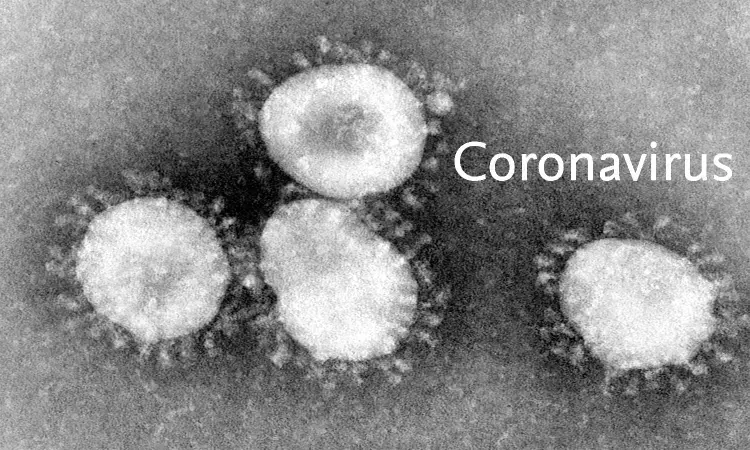- Home
- Medical news & Guidelines
- Anesthesiology
- Cardiology and CTVS
- Critical Care
- Dentistry
- Dermatology
- Diabetes and Endocrinology
- ENT
- Gastroenterology
- Medicine
- Nephrology
- Neurology
- Obstretics-Gynaecology
- Oncology
- Ophthalmology
- Orthopaedics
- Pediatrics-Neonatology
- Psychiatry
- Pulmonology
- Radiology
- Surgery
- Urology
- Laboratory Medicine
- Diet
- Nursing
- Paramedical
- Physiotherapy
- Health news
- Fact Check
- Bone Health Fact Check
- Brain Health Fact Check
- Cancer Related Fact Check
- Child Care Fact Check
- Dental and oral health fact check
- Diabetes and metabolic health fact check
- Diet and Nutrition Fact Check
- Eye and ENT Care Fact Check
- Fitness fact check
- Gut health fact check
- Heart health fact check
- Kidney health fact check
- Medical education fact check
- Men's health fact check
- Respiratory fact check
- Skin and hair care fact check
- Vaccine and Immunization fact check
- Women's health fact check
- AYUSH
- State News
- Andaman and Nicobar Islands
- Andhra Pradesh
- Arunachal Pradesh
- Assam
- Bihar
- Chandigarh
- Chattisgarh
- Dadra and Nagar Haveli
- Daman and Diu
- Delhi
- Goa
- Gujarat
- Haryana
- Himachal Pradesh
- Jammu & Kashmir
- Jharkhand
- Karnataka
- Kerala
- Ladakh
- Lakshadweep
- Madhya Pradesh
- Maharashtra
- Manipur
- Meghalaya
- Mizoram
- Nagaland
- Odisha
- Puducherry
- Punjab
- Rajasthan
- Sikkim
- Tamil Nadu
- Telangana
- Tripura
- Uttar Pradesh
- Uttrakhand
- West Bengal
- Medical Education
- Industry
Drug against Ebola may be effective against new COVID-19 strain: Study

Antiviral drugs for managing infections with human coronaviruses are not yet approved, posing a serious challenge to current global efforts. Remdesivir (RDV) is an investigational compound with a broad spectrum of antiviral activities against RNA viruses, including SARS-CoV and Middle East respiratory syndrome (MERS-CoV).
University of Alberta researchers have discovered why the drug remdesivir is effective in treating the coronaviruses that cause Middle East respiratory syndrome (MERS) and severe acute respiratory syndrome (SARS) . They expect it might also be effective for treating patients infected with the new COVID-19 strain.
The study, published in the Journal of Biological Chemistry this week, is among the first in Canada to discuss the COVID-19 strain.
Developed by Gilead Sciences as a response to the 2014 West African Ebola virus epidemic, remdesivir was first used on a patient with the novel coronavirus earlier this year in the United States.
As reported in the New England Journal of Medicine, the patient was given the drug on the seventh day of illness, and showed marked improvement the following day, with symptoms eventually disappearing altogether. And at a recent press conference in Beijing, the assistant director-general of the World Health Organization, Bruce Alyward, said remdesivir is the only drug available that may have real efficacy against COVID-19.
"Even if you know a drug works, it can be a red flag if you don't know how it works," said virologist Matthias Götte. "It is reassuring if you know exactly how it works against the target.
"We know the drug works against different coronaviruses, like MERS and SARS, and we know the novel coronavirus is very similar to SARS. So I would say I'm cautiously optimistic that the results our team found with remdesivir and MERS will be similar with COVID-19."
Until now, there has not been a published explanation of why remdesivir may work against coronaviruses, said Götte, who added his study is an important step in answering that question.
"What our study showed was that remdesivir essentially mimics one of the natural building blocks for RNA synthesis necessary for genome replication of the virus. Enzymes within the virus are synthesizing the viral RNA genome with these building blocks, but they mix up the bits they need with the drug. Once the drug is incorporated into the growing RNA chain, the virus can no longer replicate,"explained Götte.
He said the next step is to wait for results from ongoing clinical trials with remdesivir, which are expected by the end of April. Even then, that won't be the end of the story, he cautioned.
"It's likely we'll need more than one drug to properly fight emerging diseases like COVID-19, as we have with HIV and hepatitis C virus infections," Götte said.
"Ideally, we will have a couple of drugs because certain strains could be resistant to certain treatments."
For further reference log on to:
http://dx.doi.org/10.1074/jbc.AC120.013056
Dr Kamal Kant Kohli-MBBS, DTCD- a chest specialist with more than 30 years of practice and a flair for writing clinical articles, Dr Kamal Kant Kohli joined Medical Dialogues as a Chief Editor of Medical News. Besides writing articles, as an editor, he proofreads and verifies all the medical content published on Medical Dialogues including those coming from journals, studies,medical conferences,guidelines etc. Email: drkohli@medicaldialogues.in. Contact no. 011-43720751


